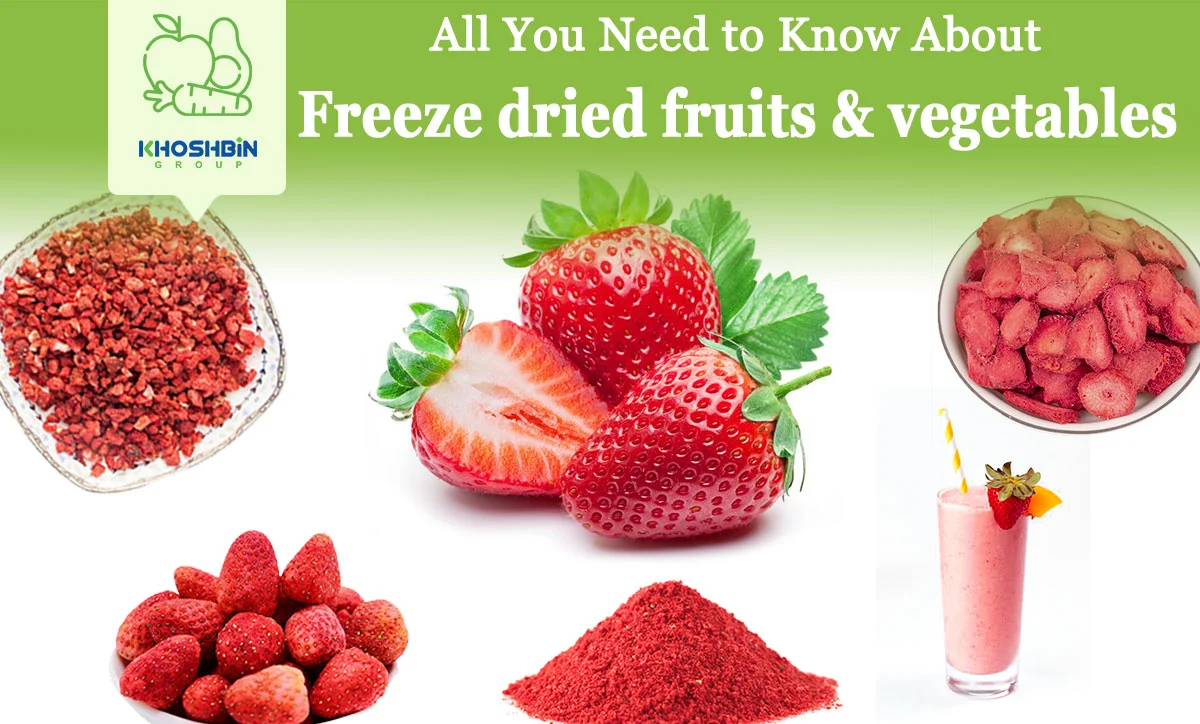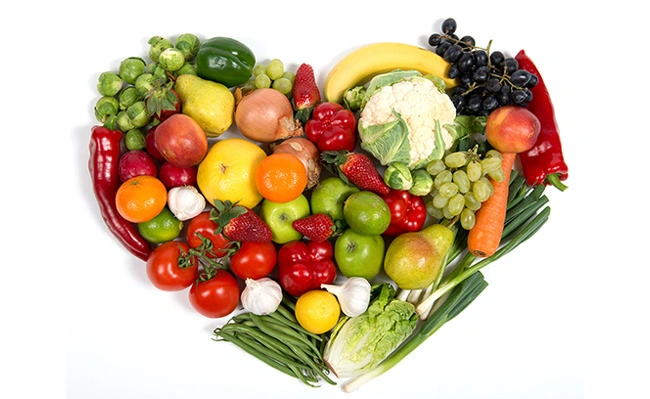Blog
All You Need to Know About Freeze dried fruits and vegetables

Freeze drying is a novel solution for making fruits and vegetables durable. It takes away nearly all the water content from the products and increases their shelf life considerably. Freeze dried fruit suppliers use this preservation method to diversify their portfolio of food products.
In this preliminary article, we will be taking a glimpse of what freeze drying has to offer. Along the way, you will be routed to relevant articles for more detailed discussions.
Please keep reading.
- General description of freeze drying
- Freeze dried fruit and vegetable product Forms
- Freeze dried fruits and vegetables storage and shelf life
- The Benefits of freeze dried fruits and vegetables
- How freeze drying compares to dehydration
- The uses of freeze dried fruits and vegetables in diets
- Freeze dried fruits and vegetables rehydration
General description of freeze drying
Freeze drying is a three-step drying process involving freezing, sublimation under low pressure, and desorption. Freeze drying gives the product long shelf life by removing nearly all its water. It results in high-quality freeze-dried products that maintain their size, structure, flavor, texture, and almost all their nutrients. Freeze drying also prevents food products from deteriorating at room temperature. However, the weight reduces by ten.
Freeze drying is now standard practice for drying and preserving various food products, including fruits and vegetables. Freeze dried fruits and vegetables can last for over 25 years in favorable storage conditions such as canned and kept in cool and dry places, and between 6 months to 3 years in Ziploc bags.
Read “Freeze-Drying: Description and Necessity” for more information about the topic.
Freeze dried fruit and vegetable product Forms
The market for freeze dried fruits and vegetables is segmented. Different product types are offered by various freeze dried fruit suppliers. The classical products include fruits and vegetables. In recent years innovative plant-based products have also found their way into the market. Generally, freeze dried fruits and vegetables are of one of the following groups:
| Division | Product |
| By Type | FruitsVegetablesCoffee Beans |
| By Form | WholeChunks/PiecesFlakes/Slices/ChipsGranulesPowder |
| By Application, | SoupsJuicesConfectionariesBakery And SnacksIce Cream and DessertsDips And DressingAnd Many More |
Freeze dried fruits and vegetables storage and shelf life
As mentioned earlier, freeze drying offers a long shelf life to fruits and vegetables. Typically, they can last for 25 years or more in proper storage conditions, such as when they are canned and kept in a cool and dry place. Some research studies have confirmed that freeze dried foods (including fruits and vegetables) can last for 30 years. However, most freeze dried products found on the market can typically remain good for six months to 6 years.
It should be noted that freeze dried foods are still edible even beyond their expiration date. However, the taste may not be as natural as if you used them within the “best by date.”In “freeze dried fruits shelf life” we have gone deep into the subject.
The Benefits of freeze dried fruits and vegetables

Freeze dried foods undergo minimal changes during the freeze drying process and, as such, are comparable to fresh foods. For example, the food structure and nutrient content remain intact while the taste concentrates. And their shelf life increases considerably by losing nearly all their water content.
Now the question is whether freeze dried food is healthy.
There have been many concerns (and myths) regarding the healthfulness of freeze dried fruits and vegetables (and freeze dried foods in general). We wrote an in-depth review on the subject in another article titled “7 excellent freeze dried fruits benefits”.
How freeze drying compares to dehydration
Freeze drying is a much better way of preservation than dehydration or heat drying. It uses short periods of heat treatment to blanch foods, fruits, or vegetables before freezing. And that’s all. While in dehydration, fruits are baked at high temperatures for 8 to 10 hours before they dry.
Typically, freeze-dried fruits and vegetables retain up to 98% of their nutrients. They only lose some fiber, vitamin C, and 98% of their original moisture. On the other hand, dehydrated fruits keep 20% to 30% of their water through dehydration. This results in a loss of vitamins A and C, thiamine, riboflavin, and niacin. In “freeze dried fruits vs dehydrated fruits” we take an in-depth look at the topic. Head to that article for thorough information.
The uses of freeze dried fruits and vegetables in diets
Freeze drying offers several dietary benefits to foods and makes them shelf-stable. Those benefits can translate into many dietary uses, from baking to preparing sauces to making soups. The possibilities are endless. We have put together “15 creative freeze dried fruit uses” in another article. Below is a summary of ideas for using freeze dried fruits and vegetables in daily diets. (Table 2 and Table 3).
| Creative use | example |
| Freeze-dried fruits use as a snack | Freeze-dried apple crispy snack |
| Freeze-dried fruits use in baking | Chocolate truffles |
| Freeze-dried fruits use in drinks and beverages | Freeze dried fruit powder fun-dip |
| Freeze-dried fruits use in smoothies | Strawberry smoothie |
| Freeze-dried fruits use in chocolates and confectionary | Chocolate bites with strawberry |
| Freeze-dried fruits use in flavoring and seasoning | Freeze dried raspberry vanilla frosting |
Freeze dried vegetables also have a wide variety of uses. They can be added as flavoring to almost any food item. They can also make for great flavoring in drinks. Read “freeze-dried vegetables specifications” for more about the topic.
| Stand-alone snack | Freeze-dried vegetables are delicious on their own and can replace high-fat chips. |
| Power-up breakfast | Freeze-dried vegetables can give a savory punch to almost any breakfast food. Consider these examples; Freeze dried vegetables in an egg scramble and dried vegetables in savory oatmeal recipes as a twist on traditionally sweet oats. Add freeze-dried corn, beans, and chili powder to spice things up. |
| Light and healthy lunch | Freeze dried corn, broccoli, or peas can provide a crunchy snack to accompany a meal, or replace high-fat chips. |
| Upgraded dinner | Almost any dinner recipe can get a boost from freeze-dried vegetables. you are not limited to in-season veggies. Here are a few examples; Add some freeze-dried pepper and make your dinner chili. Add freeze-dried produce to any food that has a liquid component. So they are perfect for almost all soups. How about sprinkling freeze dried herbs/powder on top of a salad for an added crunch? |
| Improve drinks and smoothies | a pinch of freeze dried veggie powder is enough to turn your drinks from dull to delicious |
Freeze dried fruits and vegetables rehydration
Freeze drying gives a crispy texture to foods. This enables them to readily fall apart if pressed between fingers or melt when placed in the mouth.
It also means freeze-dried fruits need no preparation before eating. They can be enjoyed as-is as a healthy snack, in yogurts, or with drinks.
Freeze-dried fruits’ crispness goes well with many sweet or savory beverages and desserts.
On occasions when you prefer soft instead of brittle food textures, you may want to rehydrate freeze-dried fruits and vegetables. For example, fruit cocktails taste better if you rehydrate them first. Freeze dried fruits and vegetables and can reconstitute them in a few minutes. Unlike dehydrated fruits, they need no boiling or cooking. You only need to pour hot water into a bowl and place the freeze-dried contents in hot water. They look and smell exactly the same as when you freeze-dried them.
Please read our article about “rehydrating freeze dried fruits” so that you can get comfortable with rehydrating.
Conclusion
The freeze drying process is straightforward with minimum hand involvement and change to the food product. It yields freeze dried fruits and vegetables that are shelf-stable, healthy, and rehydrates very quickly. Freeze dried fruits and veggies are comparable to fresh ones and have a superior position to dehydrated ones.
Do you have any experience with freeze dried fruits and vegetables? Please share your comments in the comment section.
FAQ